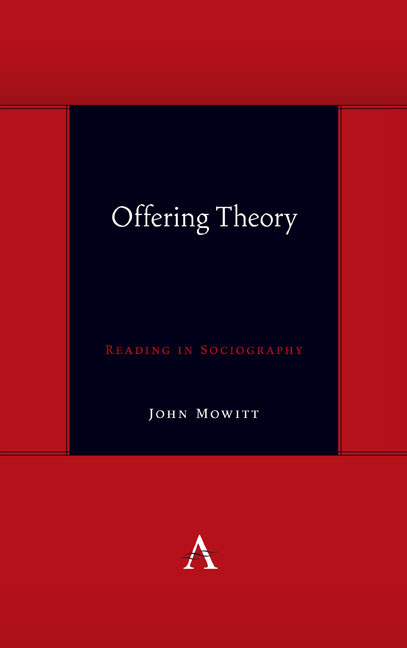Book contents
- Frontmatter
- Dedication
- Contents
- Acknowledgments
- The Pretext
- Introduction: Theory in Limbo
- 1 Queer Resistance: Foucault and the Unnamable
- 2 Stumbling on Analysis: Psychoanalysis and Everyday Life
- 3 Strangers in Analysis: Nationalism and the Talking Cure
- 4 “Jamming”
- 5 WWJD?
- 6 What Said Said
- 7 Apart from Theory
- 8 Conclusion: Theory Is Out There
- References
- Index
2 - Stumbling on Analysis: Psychoanalysis and Everyday Life
Published online by Cambridge University Press: 14 August 2020
- Frontmatter
- Dedication
- Contents
- Acknowledgments
- The Pretext
- Introduction: Theory in Limbo
- 1 Queer Resistance: Foucault and the Unnamable
- 2 Stumbling on Analysis: Psychoanalysis and Everyday Life
- 3 Strangers in Analysis: Nationalism and the Talking Cure
- 4 “Jamming”
- 5 WWJD?
- 6 What Said Said
- 7 Apart from Theory
- 8 Conclusion: Theory Is Out There
- References
- Index
Summary
In stressing the issue of the when and where of Theory, consideration of the site— at once, socioeconomic, institutional and disciplinary— of reading, the reading that Theory is, becomes unavoidable. Not necessary; just unavoidable. Thus, in this chapter this inevitability will be staged in relation to a meditation on the discipline of cultural studies— the field in and on which I work— that seeks to examine both how the concept of everyday life (Alltagsleben in the German, la vie quotidian in the French) has steadily emerged to ground its enabling concept of “culture” (think here of Raymond Williams's title, “Culture Is Ordinary”) and also how the concept of everyday life both inscribes itself within the theoretical legacy of psychoanalysis and assumes, takes on, from that inscription certain properties not typically foregrounded in the aims of cultural studies. To invoke it again, in the gesture of adumbrating, everyday life can be read as the point at which both cultural studies and psychoanalysis broach the matter of their “sociographic” inscription. If, as my reading will establish, “parapraxis” (Fehlleistung in the German) is the decisive manifestation of the “everyday,” then the “stumbling,” the mis- stepping of my chapter title is to be read as part of the manifestation of the “sociographic,” especially as it registers in Freud's thinking about the when and the where of his science.
The argument in this chapter will be staged in two parts. In the first, the conceptual and institutional difficulties currently besetting cultural studies (the Birmingham Centre for Contemporary Cultural Studies was closed in 2002) are characterized in relation to what I deem to be a vulnerability in the concept of culture when construed as the object of cultural studies. Because my immediate interest lies in motivating a reflection upon the concept of everyday life, I settle in this part for proposing that what troubles the concept of culture as a disciplinary object is its restless relation to the concept of socioeconomic determination. Indeed, at issue again is the problem of context in general, not as the opposite of text but as a weaving together in which the specific effect of one strand upon any other is not well rendered through the concept of determination.
- Type
- Chapter
- Information
- Offering TheoryReading in Sociography, pp. 37 - 58Publisher: Anthem PressPrint publication year: 2020



